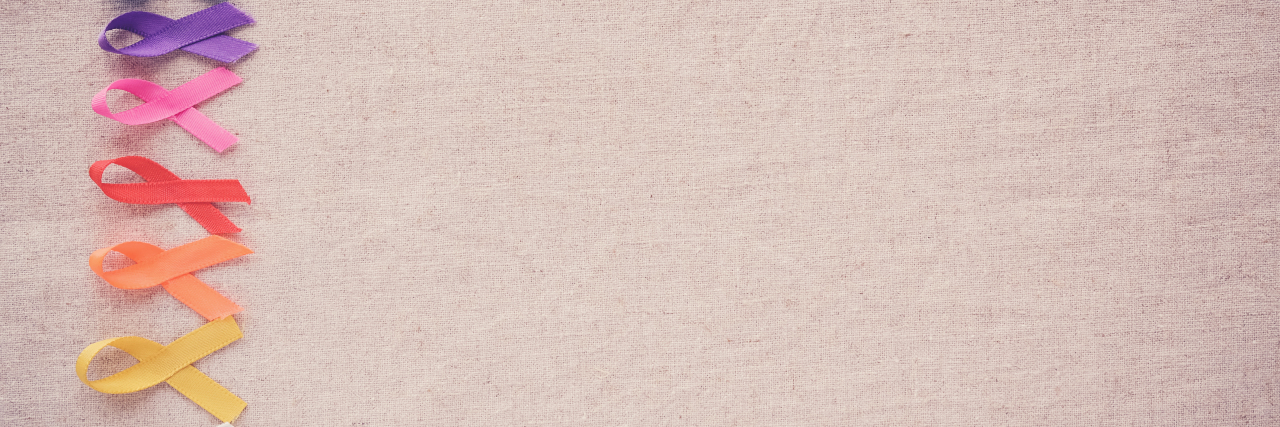As was the case when my wife and I learned she had stage III breast cancer, a diagnosis is devastating to patients and their immediate family members. Our mental health was pushed to the limit in handling the associated shock, fear, and grief. Journalist Alexandra Glorioso fittingly wrote about her own diagnosis, “…whatever cancer isn’t doing to [the] body, it’s definitely doing to [the] mind.”
Friends and acquaintances of the afflicted naturally wish to provide words of hope and support during these dark times. It’s important to understand that cancer families need to be heard, but not dismissed; helped, but not told what to do or how to feel; empathized with, but not defined by their cancer.
Whether communication takes place in person, video call, phone, or texting, saying the right things to the survivor and family can be a challenge. Words that are inspirational for one cancer fighter may not be for another. What thoughts are helpful to communicate? And which are not? Unfortunately, the answer is complicated since much is dependent on individual sensitivity to your intended meaning. Therefore, audience analysis is critical, and it’s best if your messages are individualized as much as possible. If you’re well acquainted with the cancer-survivor family, you may already know the parameters of what is or isn’t appropriate to say.
But if you don’t know them all that well, here are some general guidelines to consider before talking with those in the cancer community:
1. Avoid suggesting how we should feel or react.
If you’ve had a cancer experience and you’re asked to elaborate, that’s one thing. But counseling us not to worry because “everything will be fine,” to “just focus on the positive,” to “be happy it’s not stage IV,” or that we “need to stay strong,” generally isn’t helpful, as it only dismisses terrifying cancer realities.
2. Be careful how you frame our journey.
Some survivors and caregivers may embrace interaction speculating cancer’s philosophical or religious significance. But others have no interest in pondering what they see as artificial rationalization for their physical and emotional suffering. Throughout my caregiving, I found that cliché-laden approaches weren’t much help. Statements such as “I believe everything happens for a reason,” or “God has a plan for you,” seemed more contrived than constructive, despite their positive intent. Translation: Trying to turn crappy into happy will fail virtually every time.
3. Think twice before inserting your faith.
Of course, privately praying for us is fine. But whether you’re a devout believer or staunch atheist, pushing your spirituality brand may not be welcomed by some cancer families, even if you’re convinced “it’s for their own good.” Learn of our beliefs before broaching the subject. If we differ in perception, imposing your views will deliver little or no psychological benefit.
4. Cancer fighters don’t need (or want) unsolicited medical advice.
We have trusted board-certified oncology team members who have enlightened us about our most effective treatment options. Please don’t assert that you somehow have curative answers our knowledgeable team does not. It isn’t your place to push dietary supplements or to send us alternative therapy endorsements, cancer news updates, or treatment conspiracy-theory videos. Remember: This isn’t your fight; it’s our misfortune to cope with and make medical decisions about.
5. Empathy is key.
Short of enduring cancer or caregiving yourself, it’s difficult to understand the sheer terror, fatigue, or pessimism we’re experiencing. And even if you have, everyone’s pathways are still different. Stating “I know how you feel,” could be perceived as tone deaf to those struggling with chemotherapy and survival anxiety. Instead, mirror us in acknowledging the depth of our plight. “I can’t imagine how difficult this is,” might be a better response.
6. Be adaptable, and try not to get caught off guard in conversation.
Patients and caregivers have good and bad days, and you might need to make some spontaneous adjustments. If you’re wanting cancer updates from us, it’s OK to ask. But don’t take it personally if we wish to avoid the subject. Sometimes normal, mundane discussion is a necessary escape for us.
7. When offering tangible support, it helps if you’re precise.
Instead of saying, “Call if you need me,” (which makes us feel obligated to create specific to-do lists when we already have a lot on our plates), try to be proactive. Ask about our appointment schedule and if we’d ever need you to drive us. Check to see if there are errands you could run or gardening chores to do. Inquire if we’re interested in joining you for a walk. Suggest a day you might bring us a prepared meal or order a pizza.
8. Prepare an advance dialogue strategy.
You might call before a stopover to see how we’d prefer the interaction to go; how long would be an appropriate visit; if it’s ok to ask questions; what subjects might be off limits. If we’re down, just co-grieve with us. Be as empathetic and compassionate as possible.
Should the right words still seem elusive, the simple act of tacitly listening can be a great fallback. If need be, just let the cancer family lead the topic direction. Allow us to vent about the treatment horrors or the stress of caregiving without commentary on how you think we should be handling things. There will be times we don’t want to talk about it. But there will also be times we can’t stop talking about it. One way or the other, your mere presence can be exceptionally supportive.
Only our oncology team can help on our physical side of coping. But your visits with us can do wonders, psychologically. And more likely than not, we’ll be grateful.
Keith T. Hardeman, author of The Shadow of Trepidation: Reflections on caregiving during my wife’s battle with breast cancer, Outskirts Press, 2021, is a cancer caregiver and professor of communication studies at Westminster College in Fulton, MO.
Getty image by ThitareeSarmkasat

